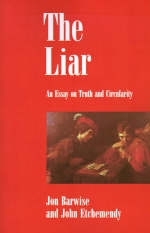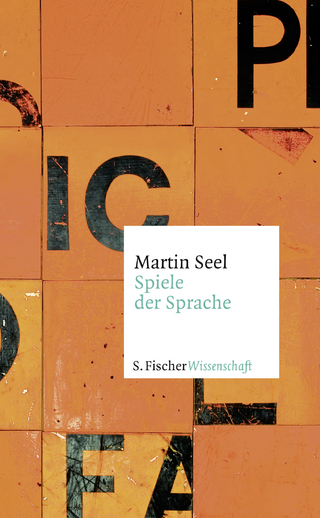
The Liar
An Essay on Truth and Circularity
Seiten
1989
Oxford University Press (Verlag)
978-0-19-505944-1 (ISBN)
Oxford University Press (Verlag)
978-0-19-505944-1 (ISBN)
This monograph purports to provide a solution to semantical paradoxes like "the liar". The authors base this solution on J.L.Austin's idea of truth, which is fundamental to situation semantics, and compare two models of language, propositions and truth.
This monograph purports to provide a solution to semantical paradoxes like the Liar. The authors base this solution on J. L. Austin's idea of truth, which is fundamental to situation semantics. They compare two models of language, propositions and truth, one based on Russell and the other on Austin, as they bear on the Liar Paradox. In Russell's view, a sentence expresses a proposition, which is true or not. According to Austin, however, there is always a contextual parameter - the situation the sentence is about - that comes between the sentence and proposition. The Austinian perspective proves to have fruitful applications to the analysis of semantic paradox. The authors show that, on this account, the liar is a genuine diagonal argument. This argument can be shown to have profound consequences for our understanding of some of the most basic semantical mechanisms at work in our language.
Jon Barwise is, with John Perry, a co-founder of the Centre for the Study of Language and Information at Stanford.
This monograph purports to provide a solution to semantical paradoxes like the Liar. The authors base this solution on J. L. Austin's idea of truth, which is fundamental to situation semantics. They compare two models of language, propositions and truth, one based on Russell and the other on Austin, as they bear on the Liar Paradox. In Russell's view, a sentence expresses a proposition, which is true or not. According to Austin, however, there is always a contextual parameter - the situation the sentence is about - that comes between the sentence and proposition. The Austinian perspective proves to have fruitful applications to the analysis of semantic paradox. The authors show that, on this account, the liar is a genuine diagonal argument. This argument can be shown to have profound consequences for our understanding of some of the most basic semantical mechanisms at work in our language.
Jon Barwise is, with John Perry, a co-founder of the Centre for the Study of Language and Information at Stanford.
INTRODUCTION: The Liar; Sentences, statements, and Propositions; The universe of hypersets; RUSSELLIAN PROPOSITIONS AND THE LIAR: Modeling Russellian propositions; Truth of Russellian propositions; Consequences of the Russellian account; Sentences and Russellian propositions; AUSTINIAN PROPOSITIONS AND THE LIAR: Modeling Austinian propositions; Austinian propositions and the world; An Austinian semantics; Relating the Russellian and Austinian accounts; Negation and denial; Conclusions; Bibliography; Index.
| Erscheint lt. Verlag | 25.5.1989 |
|---|---|
| Zusatzinfo | figures and tables |
| Verlagsort | Oxford |
| Sprache | englisch |
| Maße | 141 x 210 mm |
| Gewicht | 251 g |
| Themenwelt | Geisteswissenschaften ► Philosophie ► Sprachphilosophie |
| Geisteswissenschaften ► Sprach- / Literaturwissenschaft ► Sprachwissenschaft | |
| ISBN-10 | 0-19-505944-1 / 0195059441 |
| ISBN-13 | 978-0-19-505944-1 / 9780195059441 |
| Zustand | Neuware |
| Informationen gemäß Produktsicherheitsverordnung (GPSR) | |
| Haben Sie eine Frage zum Produkt? |
Mehr entdecken
aus dem Bereich
aus dem Bereich
Wie die Menschheit zu ihrer größten Erfindung kam
Buch | Softcover (2022)
C.H.Beck (Verlag)
18,00 €
Macht und Legitimität politischer Sprache im Prozess der europäischen …
Buch | Softcover (2023)
Nomos (Verlag)
74,00 €


